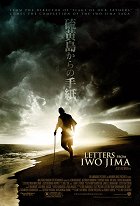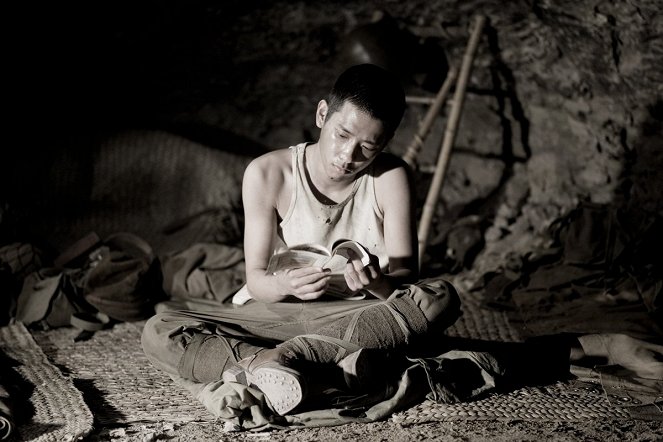Regie:
Clint EastwoodDrehbuch:
Iris YamashitaKamera:
Tom SternBesetzung:
Ken Watanabe, Kazunari Ninomiya, Tsuyoshi Ihara, Ryō Kase, Shidō Nakamura, Takumi Bando, Yuki Matsuzaki, Takashi Yamaguchi, Nae Tazawa (mehr)Inhalte(1)
Der Angriff der Amerikaner auf die Insel Iwo Jima im Februar 1945 steht bevor. Darüber, wie die Vorbereitung darauf genau aussehen soll, herrscht Uneinigkeit. Während die Offiziere die Insel in einem offenen Kampf und vor allem an der Küste verteidigen wollen, ordnet General Kuribayashi das Graben von einem Tunnelsystem an. Kuribayashi hat einige Monate in den USA gelebt und kennt den Feind. Er weiß, dass die japanischen Streitkräfte den Amerikanern zahlenmäßig stark unterlegen sind und sie höchstens mit einer ausgeklügelten Strategie besiegen können. Aber es geht um mehr, nämlich um die Frage, was es heißt, ein Patriot zu sein und für sein Land zu kämpfen. Während der General angesichts der aussichtslosen Situation beim Berg Suribachi den Rückzug anordnet, widersetzt sich der Hauptmann seinen Befehlen und zwingt seine Männer zum Suizid. Auch vom Festland kommt die Ansage, dass es keine Unterstützung geben wird, die Soldaten aber heldenhaft bis zum Tod für ihr Land kämpfen sollen. (arte)
(mehr)Videos (2)
Kritiken (8)
Ich habe das Buch gelesen, das Clint und die Drehbuchautoren inspirierte, und ich muss sagen, dass ich mir alles genau so vorgestellt habe, wie es mir schließlich im Film dargeboten wurde. Briefe aus Iwo Jima ist zweifellos einer der besten "modernen“ Kriegsfilme, die ich gesehen habe . P.S. Hören Sie sich auch den Soundtrack an – aber Vorsicht, er ist mitreißend und nicht mehr so einfach aus dem Kopf zu bekommen.
()
Letters from Iwo Jima ist ein schöner Film. Der japanische Blick ist düsterer, reifer und meditativer als der US-amerikanische Film Flags of Our Fathers. Und im Gegensatz zu ihm funktioniert seine Innenstruktur. Die großartigen Actionszenen sind wirklich beeindruckend. Das hängt damit zusammen, dass es in dem Film nur wenige gibt und dass man sie von Weitem beobachtet. Dadurch hat der Film einen kleinen Rahmen. Das Sentiment und die Ausführlichkeit werden geschmackvoll durch die schöne visuelle Seite und die minimalistische Musik von Clint Eastwood ausgeglichen, in der ein zartes Klaviermotiv dominiert. Man freut sich auch über die Zuneigung der Autoren zu den Japanern. Einen Kontrast bildet die Verachtung der US-amerikanischen Soldaten, die in manchen Szenen zu sehen ist. Schade, dass der Film Flags of Our Fathers ein so unwürdiges Geschwister von Letters from Iwo Jima ist und dieses ehrgeizige Film-Duo auf das Niveau eines schnell gemachten front runner der Oscar-Zeremonie gebracht hat. Wenn man sich mit diesem Werk mehr Mühe gegeben hätte, hätte es in die Geschichte eingehen können.
()
Clint Eastwood is an experienced and highly professional craftsman of American film studios and I don't think he has ever disappointed me with any film, but none of his movies have really made me excited, either. He usually represents a safe bet, as he is disciplined but mostly predictable. I'm not saying that Letters from Iwo Jima is a bad war film, I just feel like more could have been extracted from the given material. The most intense battles on the Pacific front took place on this island, where strength crushed strength and determination clashed with determination, and considering how intense that battle was, I didn't really see much of that excitement in the film. The execution scene of two Japanese prisoners was perhaps the only surprising and cinematically enjoyable moment; otherwise, Eastwood's journey into World War II history left me rather indifferent emotionally. Overall impression: 60%.
()
Without a doubt one of the best anti-war films ever to grace cinema screens. Eastwood is not playing "soldiers" or "good guys vs bad guys", his view of war is much more complex. His film is one of the few that looks at the soldiers of the Berlin-Rome-Tokyo Axis from the human side (in this respect, of the few cases before him, I remember Vilsmaier's Stalingrad, or the emotional ending of Riders in the Sky) and demythicizes the conventional view of ordinary Japanese soldiers as heartless war creatures with heads full of kamikaze. No matter which side of the conflict you are on, talking to a friend about family, making jokes, fearing death and questioning the meaning of war are all human feelings that are the same for everyone, regardless of the uniform they wear. Eastwood tells the story sparingly, but every minute has its place, and some scenes – the mass suicide, Baron's conversation with the wounded American soldier, the shooting of the prisoners, even the scene with the dog – are very memorable. And why not admit it, reading a letter from the mother of a deceased prisoner of war brought tears to my eyes, and in Eastwood's masterful rendition such moments are simply hard to resist. And if you think they are all made up, you are a lost cause. It is quite clear from the film that the greatest enemy in a war conflict is not a combatant from the enemy side, but the nonsensical orders of a moron in a superior uniform. Otherwise, the fight scenes have verve, although Eastwood commendably doesn't try to be as spectacular as possible (unlike, for example, Spielberg in the final battle in Saving Private Ryan) and the charismatic Watanabe is growing into a great actor in my eyes from film to film. With all due respect to my favorite Marty and his The Departed, the clear Oscar winner in my eyes is once again "Iron Old Man" Clint and his sensitive, empathetic masterpiece. The average rating on IMDb, 8.3/10, says much more about its real value than here on FilmBooster. And I don’t think half the votes there come from Japan.
()
Iwo Jima Island - deserted, no water, full of bothersome insects and afflicted with unbearable humidity. But still, it is a strategic key to the Pacific... If I hadn’t known anything at all about the Letters I wouldn’t have hesitated an instant in swearing that this was filmed by Kurosawa. Everything from picture composition, introduction and departure from plot action through supporting characters through to the overall atmosphere - this all bears his signature. Clint Eastwood has made an excellent picture about the senselessness of war and respect for the enemy. Despite the fact that the battle scenes aren’t at all central to the movie, we get several here and they are unarguably outstanding. Don’t expect a second Saving Private Ryan, though. This is a considerably more intimate experience. Ken Watanabe plays is Mifune-scale role exemplarily. If the first half of Letters from Iwo Jima had been shorter, there would have been nothing to fault.
()



Werbung